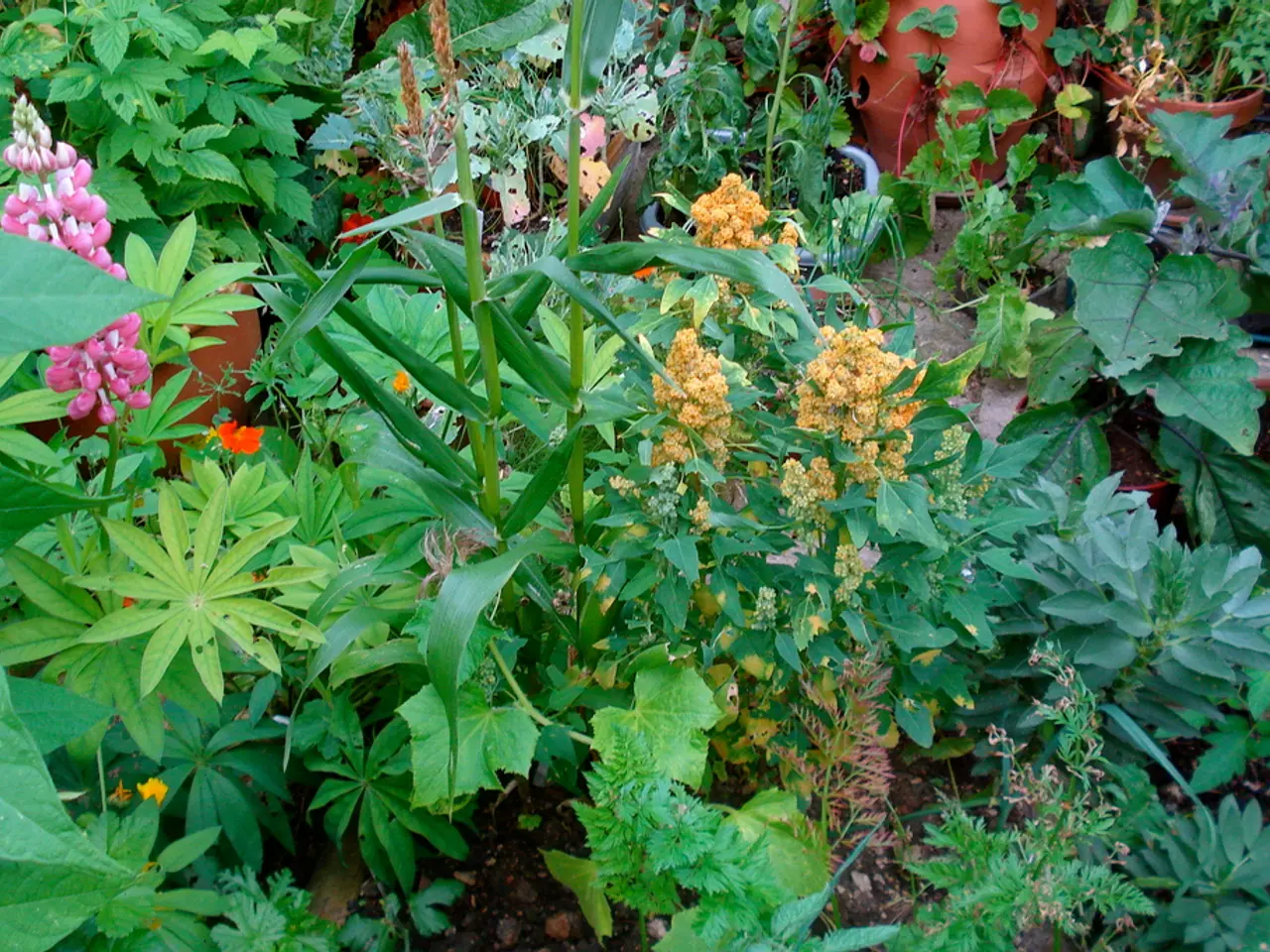The Healing Power of Nature and Gardens Unveiled: A Deep Dive into Their Restorative Qualities
In recent years, horticultural therapy and nature gardens have emerged as powerful tools for promoting mental and physical health. These green spaces offer a unique blend of tranquillity and activity that often surpasses the effects of pharmaceutical interventions, particularly for conditions like depression.
One of the most notable benefits of horticultural therapy is its ability to reduce symptoms of depression and anxiety. Numerous studies, including meta-analyses of randomized controlled trials, have demonstrated that horticultural therapy significantly reduces symptoms of depression, anxiety, and general psychological distress more than standard care alone [1][3]. A large Canadian study found gardening therapy to be nearly seven times more effective than usual care in reducing depression among older adults in long-term care, while antidepressants were associated with worse outcomes than usual care [2].
The psychological advantages of nature gardens are extensive and long-lasting, leading to significant improvements in mental health outcomes. Nature engages involuntary attention through calming, non-demanding stimuli, allowing cognitive rest and recovery from mental fatigue, improving overall cognitive performance [1]. Gardening also offers a bottom-up therapeutic approach by calming the nervous system through repetitive, sensory activities, improving regulation and emotional resilience without requiring verbal processing of trauma [3]. Caring for plants fosters patience, accomplishment, purpose, mindfulness, and sensory grounding, which support improved mental well-being [3].
In addition to mental health benefits, horticultural therapy provides physical health advantages. Gardening activities such as digging and planting provide gentle yet sustained physical activity beneficial especially for older adults or sedentary individuals, improving muscle mass, endurance, and overall physical fitness [1][3]. Regular exposure to diverse microbes in soil improves microbiome diversity on skin and in the gut, which enhances immune function, potentially reducing allergies and autoimmune diseases [1][4]. Outdoor gardening also supports vitamin D production from sunlight, critical for bone strength and immune system support [1].
Horticultural therapy has been shown to outperform antidepressant medication in elderly populations in terms of depression symptom reduction, with no adverse side effects and added physical health gains due to increased activity and improved immunity [2]. Nonpharmacologic therapies like gardening are low-risk, cost-effective, and sustainable, making them ideal alternatives or complements to medication, especially when traditional pharmacologic treatments fail or cause negative effects [2][3].
The COVID-19 pandemic has accelerated the recognition of nature's role in mental health maintenance. Home gardening activities during the pandemic have been shown to reduce stress levels and increase life satisfaction [4]. Urban planning initiatives that incorporate green spaces into neighbourhoods have demonstrated measurable improvements in community mental health outcomes [4].
Community gardens foster intergenerational interaction and a sense of belonging and support. Shared gardening activities enhance social cohesion, reduce isolation, and provide informal support networks for individuals facing mental health challenges. Healthcare systems are now actively promoting garden-based activities as part of their comprehensive wellness programs.
Future developments in garden-based healthcare may involve the integration of technology, such as virtual reality garden experiences and biometric monitoring systems. Internationally recognized gardens, like the Royal Botanic Gardens at Kew, Singapore Botanic Gardens, The Butchart Gardens, and Gardens by the Bay, maximize health benefits while preserving biodiversity and cultural heritage.
In conclusion, horticultural therapy and nature gardens provide profound mental benefits such as significant symptom reduction in depression and anxiety, cognitive restoration, improved trauma recovery, and emotional well-being, alongside physical benefits like moderate exercise and immune enhancement. These benefits often exceed those afforded by pharmaceutical treatments in certain populations, with added advantages of minimal risks and broader holistic health improvements [1][2][3][4].
- The psychological advantages of nature gardens, such as reduced symptoms of depression and anxiety, are based on various studies, including large-scale meta-analyses, demonstrating their efficacy in improving mental health outcomes [1][3].
- Gardening activities, like digging and planting, offer physical health benefits, including improved muscle mass, endurance, and overall physical fitness, particularly for older adults or sedentary individuals [1][3].
- Horticultural therapy, through interactions with plants, can foster patience, accomplishment, purpose, mindfulness, and sensory grounding, which support improved mental well-being [3].
- Nature gardens, besides mental and physical health benefits, can also contribute to community development, fostering intergenerational interaction, a sense of belonging, and support [4].
- Gardening activities, when incorporated into urban planning initiatives, have shown measurable improvements in community mental health outcomes [4].
- In the future, garden-based healthcare may integrate technology, such as virtual reality garden experiences and biometric monitoring systems, to provide more immersive and personalized experiences [4].
- Internationally renowned gardens, like the Royal Botanic Gardens at Kew, Singapore Botanic Gardens, The Butchart Gardens, and Gardens by the Bay, focus not only on health benefits but also on preserving biodiversity and cultural heritage.




